My thesis project, entitled "we're doing our best" is a deep dive into the psyche of people living with Borderline Personality Disorder, abbreviated as BPD.
When I was first tasked with choosing a thesis topic back in the summer of 2017, I kept gravitating back to mental illnesses. Many of my closest friends suffer from a variety of personality disorders - some have taken their own lives due to them. One of the most prevalent disorders i've seen amongst people I know is BPD - a disorder defined by severe problems with interpersonal relationships, self-destructive behavior, anger problems, extreme thinking, and an intense fear of abandonment.
With this, I started interviewing and researching. I learned as much as I could about BPD from a variety of sources, whether they be books detailing people's experiences with the personality disorder or medical journals discussing various treatments for those affected.
I chose to present the information I gathered in two separate forms, a motion infographic displaying the statistics of the illness, as well as zines that chronicled each interviewees personal struggle with their BPD.
I chose to present the information I gathered in two separate forms, a motion infographic displaying the statistics of the illness, as well as zines that chronicled each interviewees personal struggle with their BPD.
The link to the PDF files of each of the zines can be found by following this Dropbox link:
https://www.dropbox.com/sh/06d7hquf9j7ppxl/AAD4fQ04D_XAWaoaA5Pcwl5na?dl=0
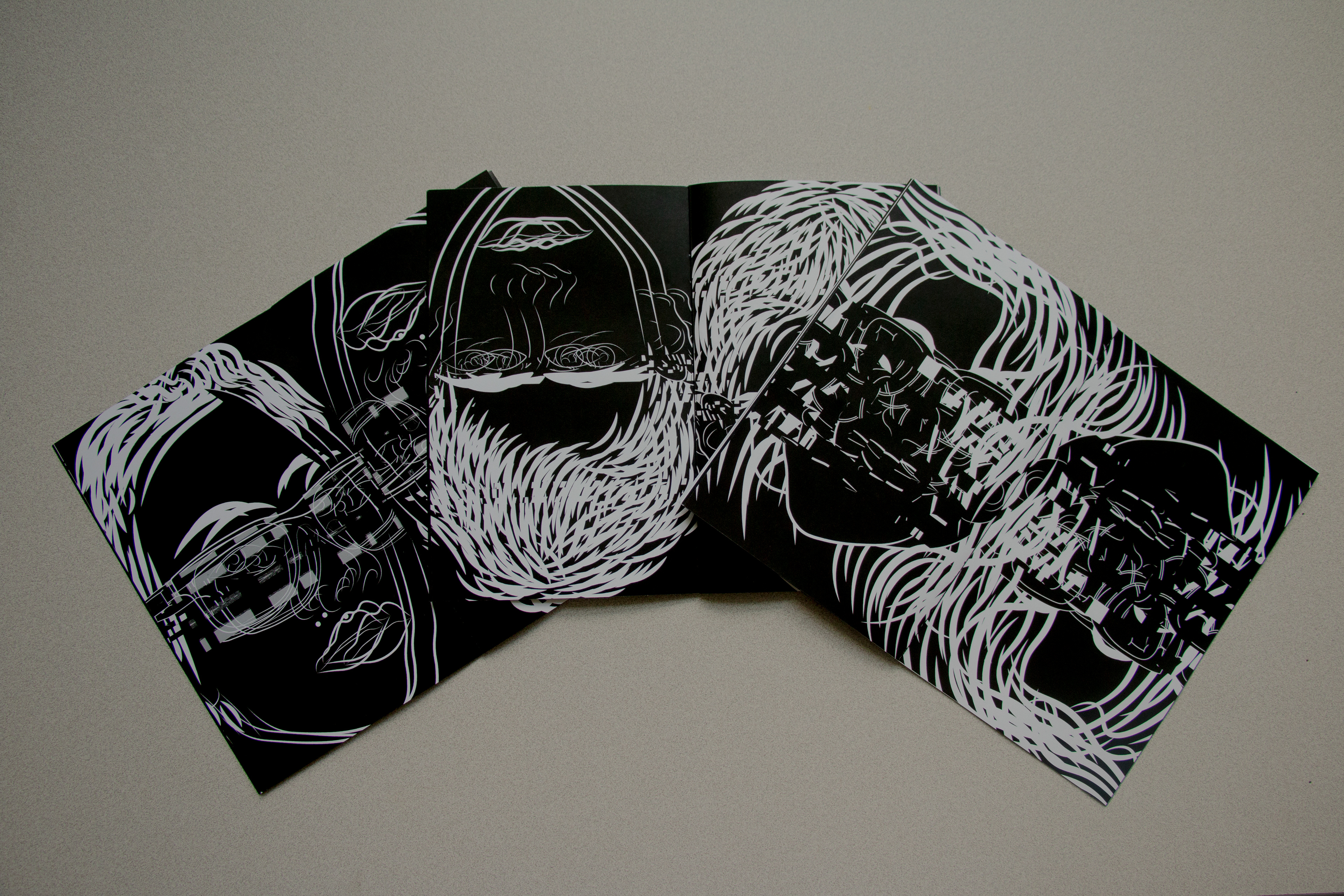

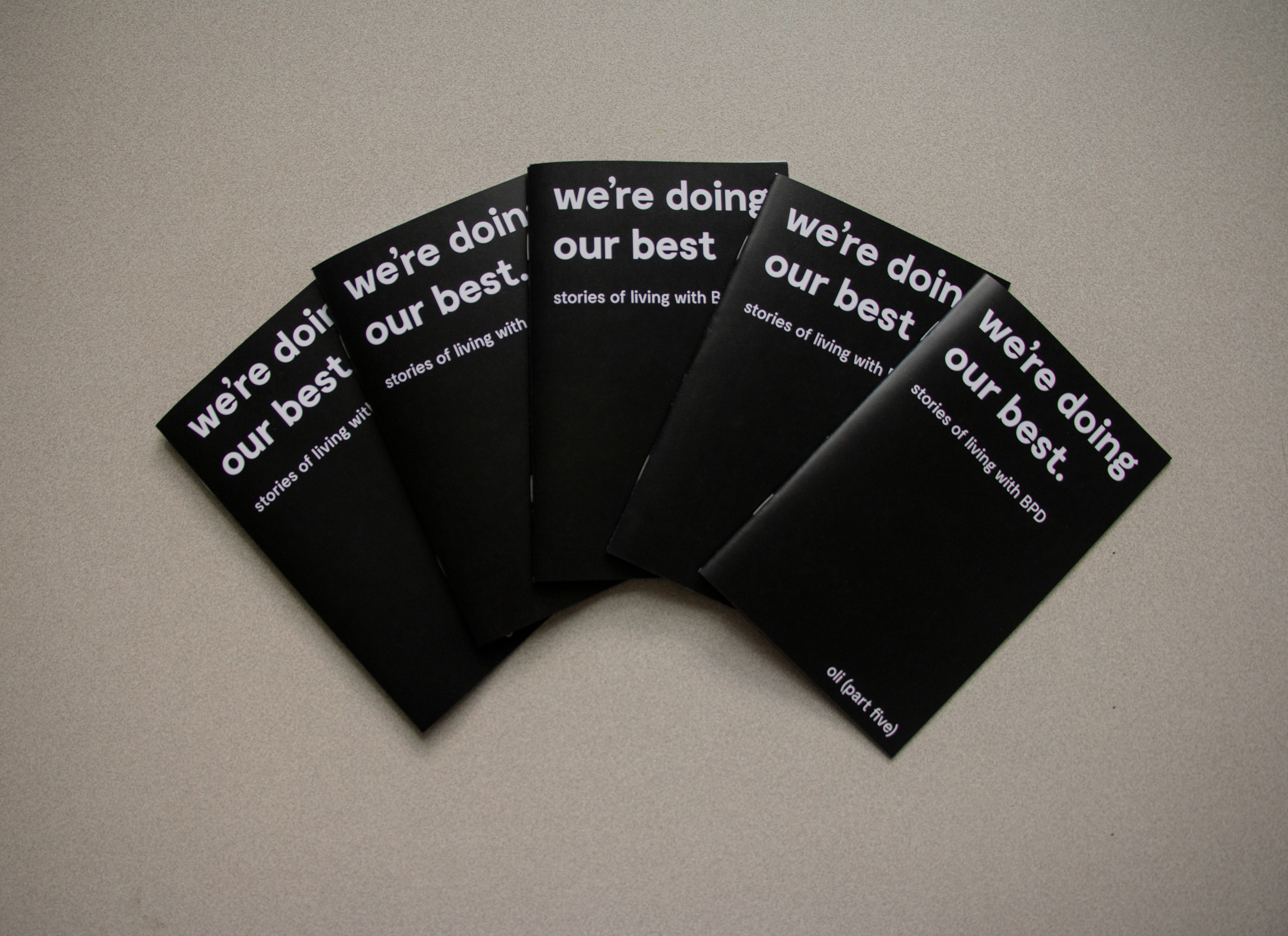
Around mid November of 2017, the entire Graphic Design BFA class gave a "Pecha Kucha" talk
(Japanese for chit-chat) to the rest of the BFA candidates. The idea was that we would pitch 12 slides describing our project, with ten seconds to explain each slide. With this, we would get feedback on what we were planning on doing, while feeling good about explaining our projects to a group of people.
(Japanese for chit-chat) to the rest of the BFA candidates. The idea was that we would pitch 12 slides describing our project, with ten seconds to explain each slide. With this, we would get feedback on what we were planning on doing, while feeling good about explaining our projects to a group of people.
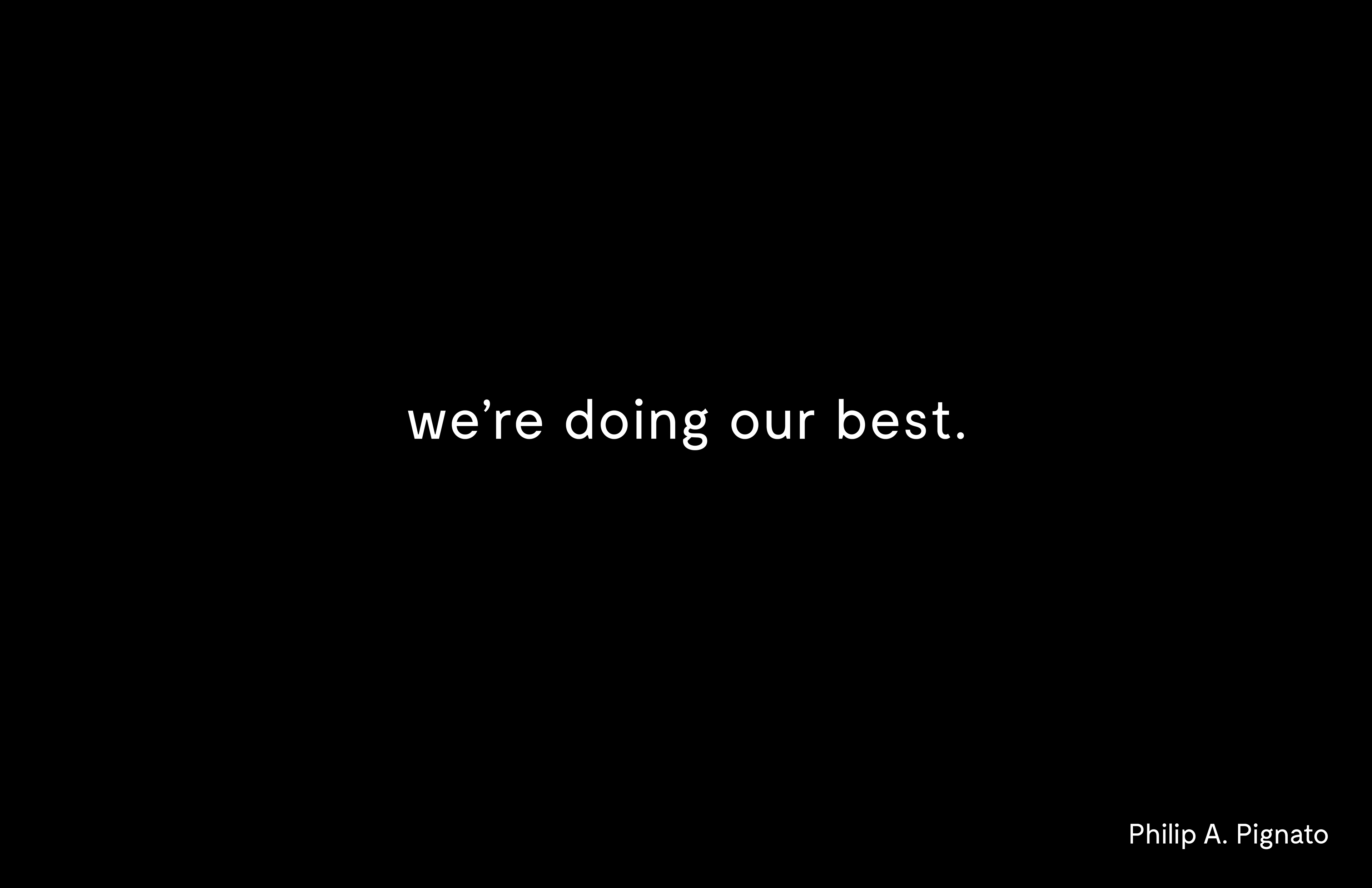
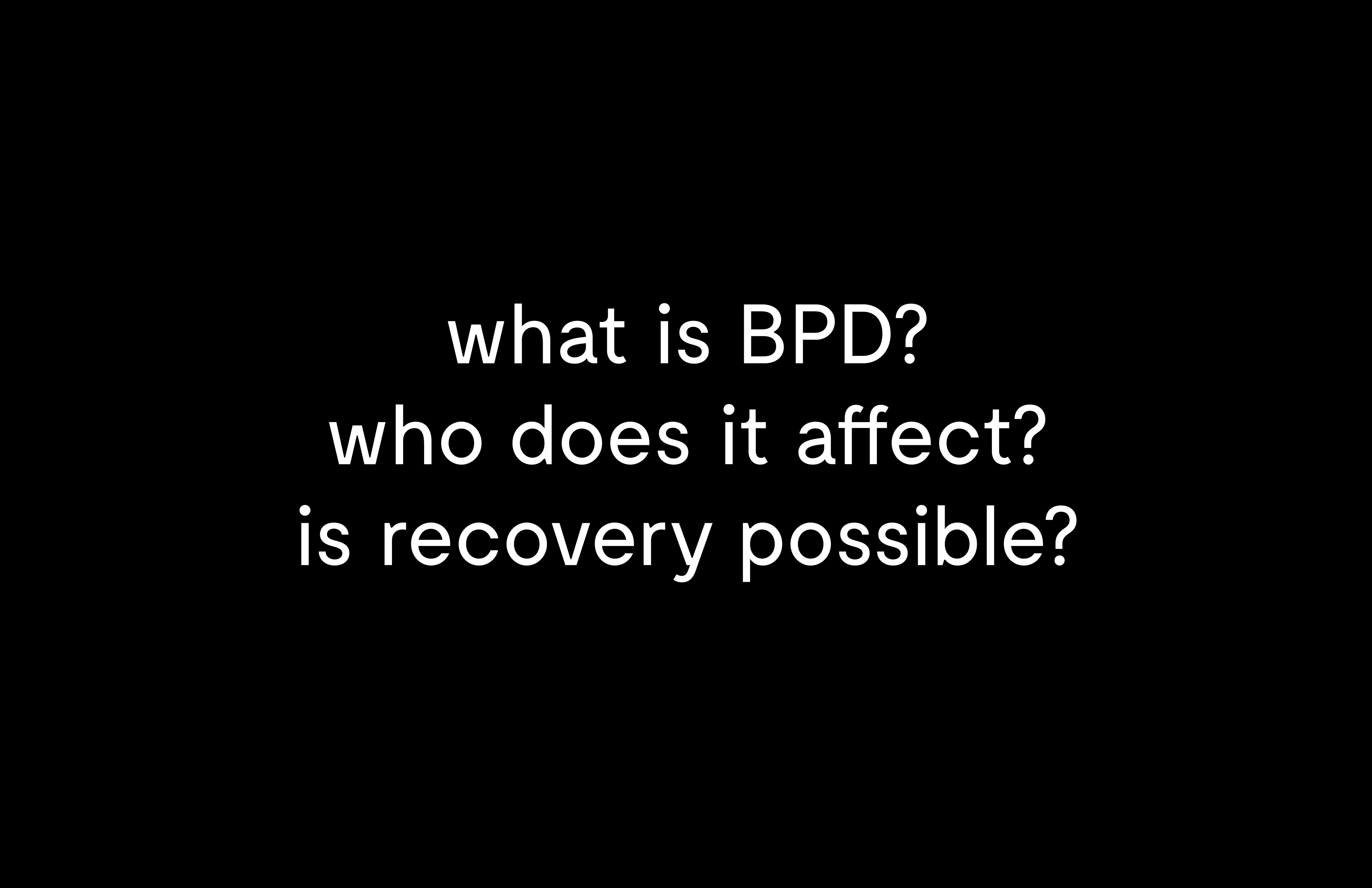
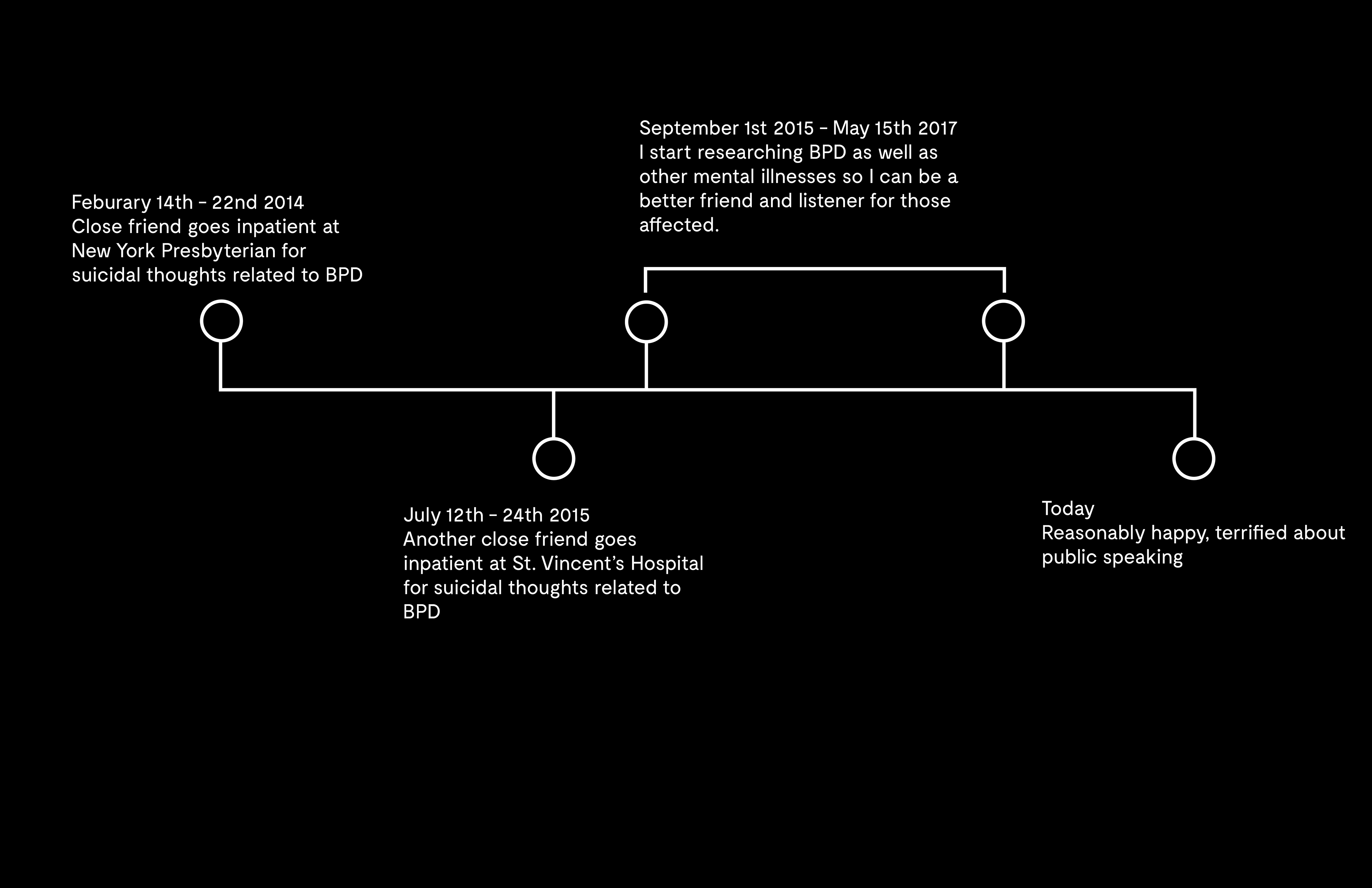
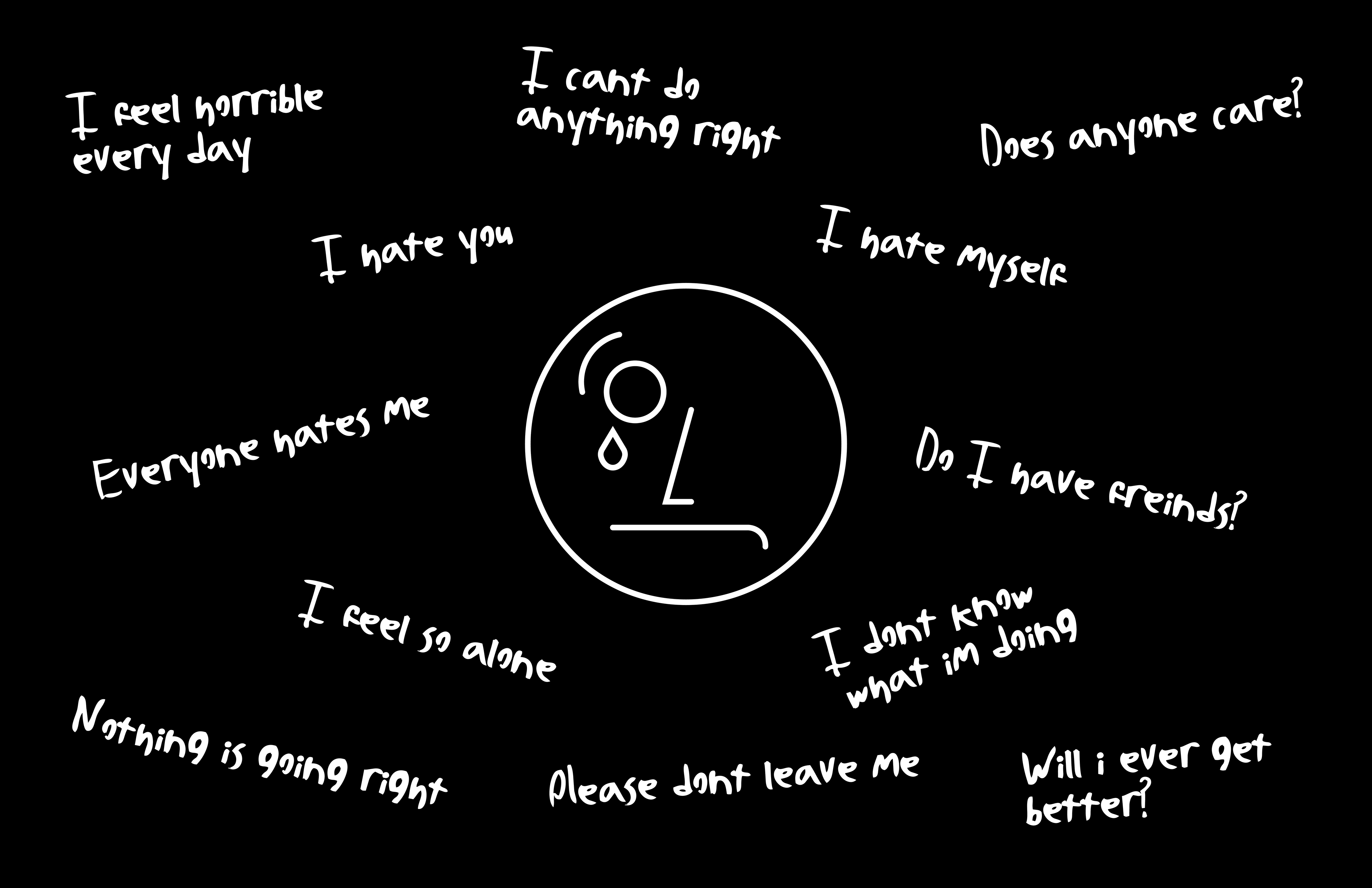
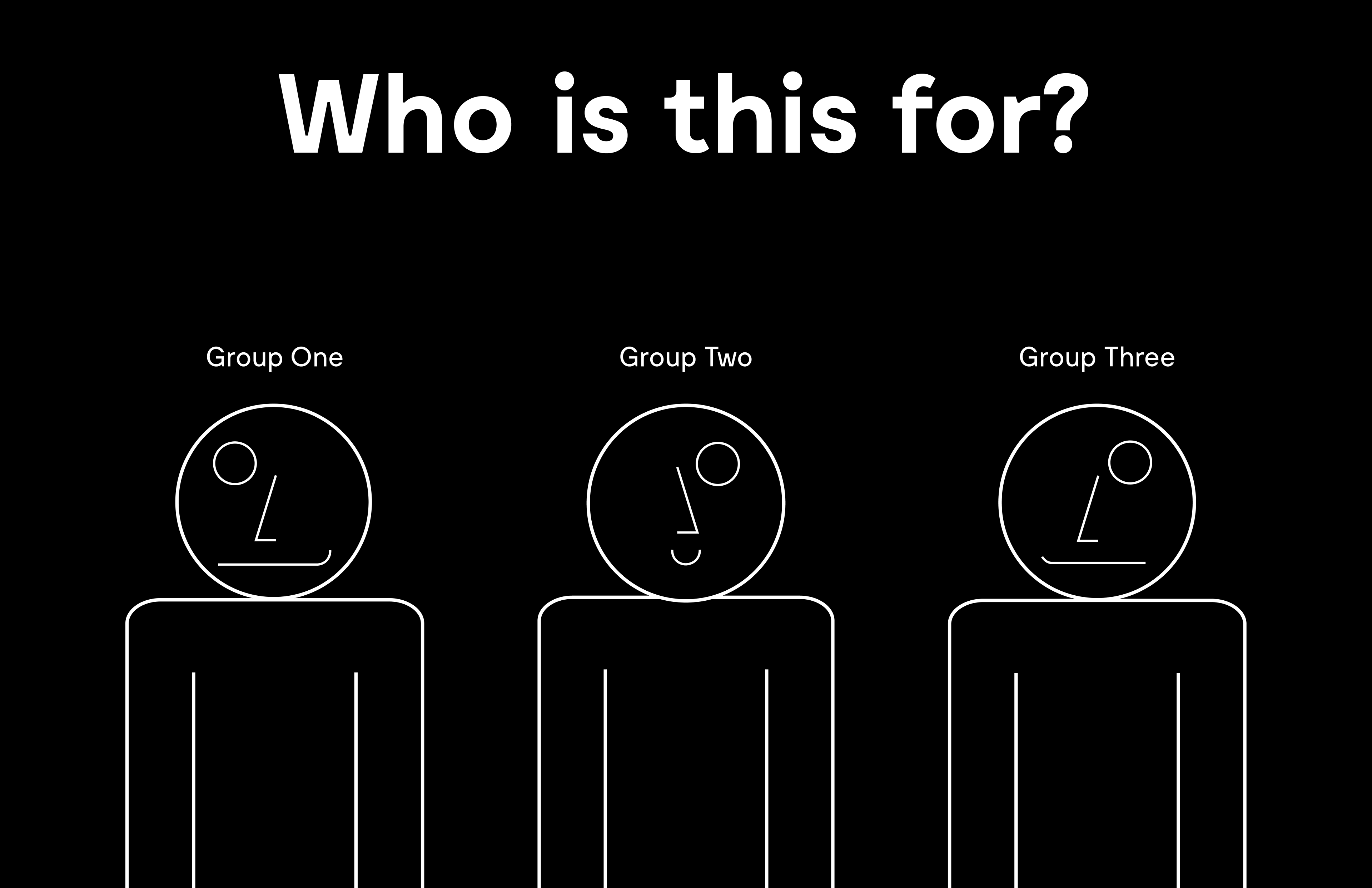
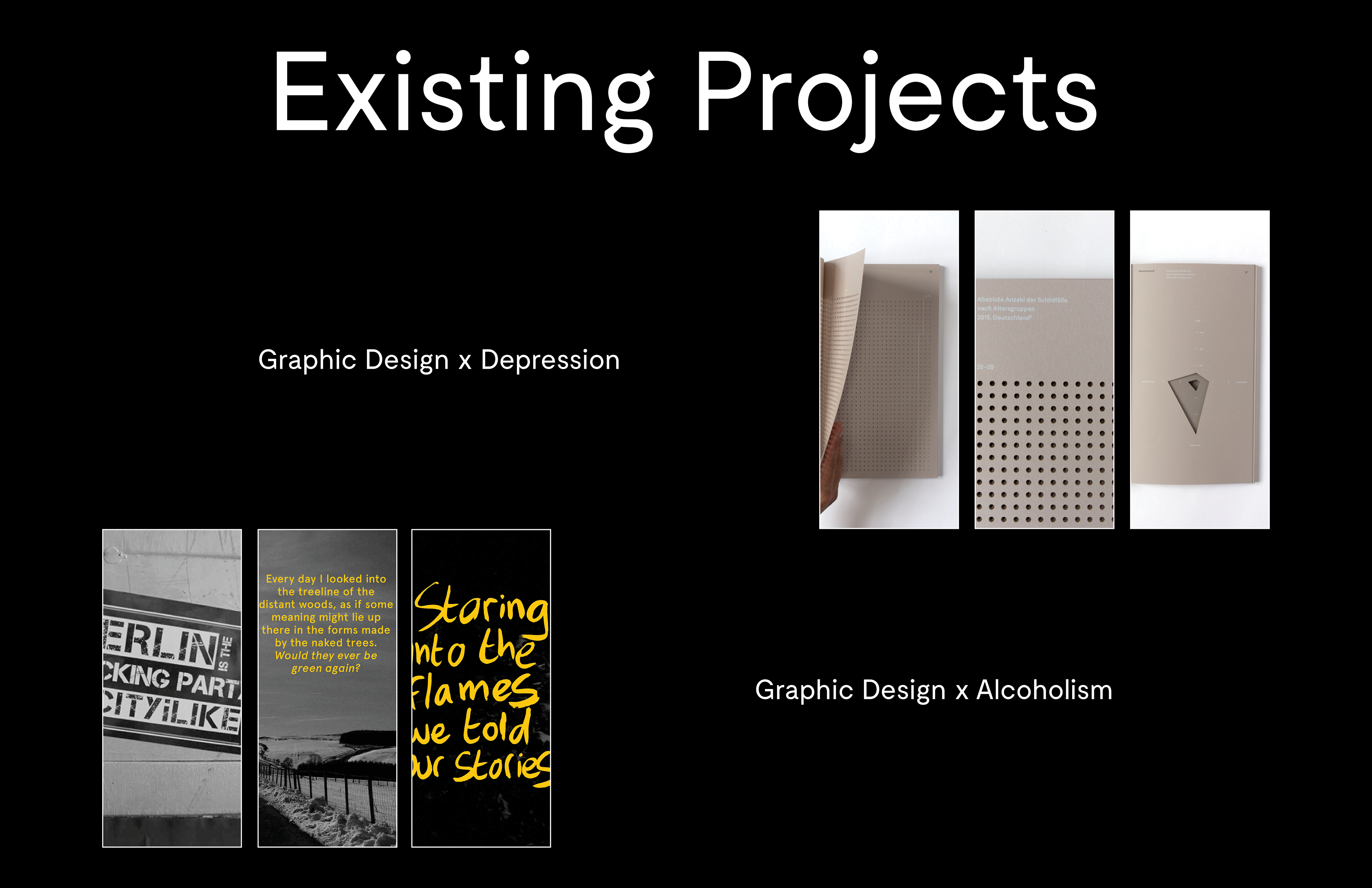
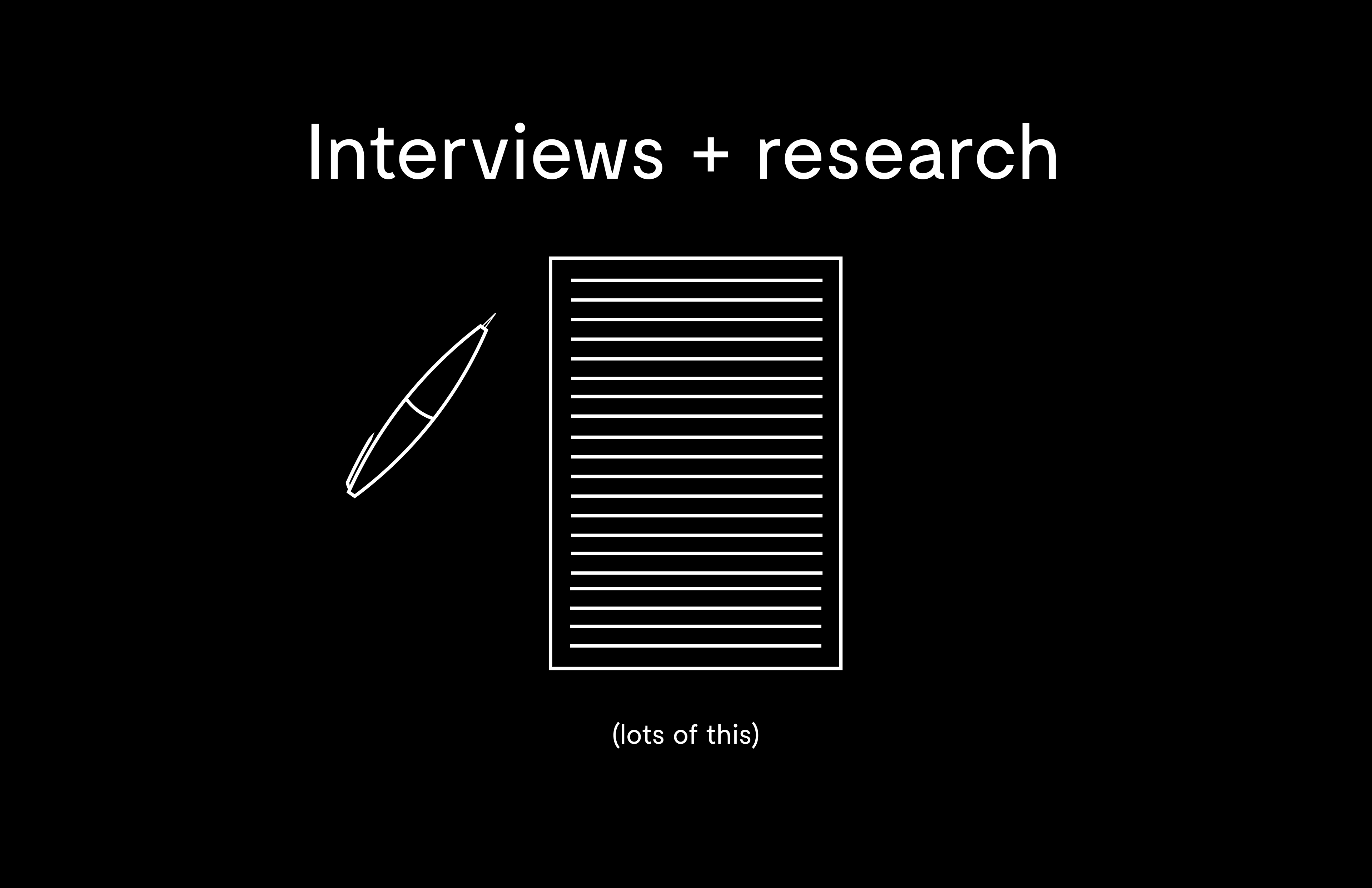
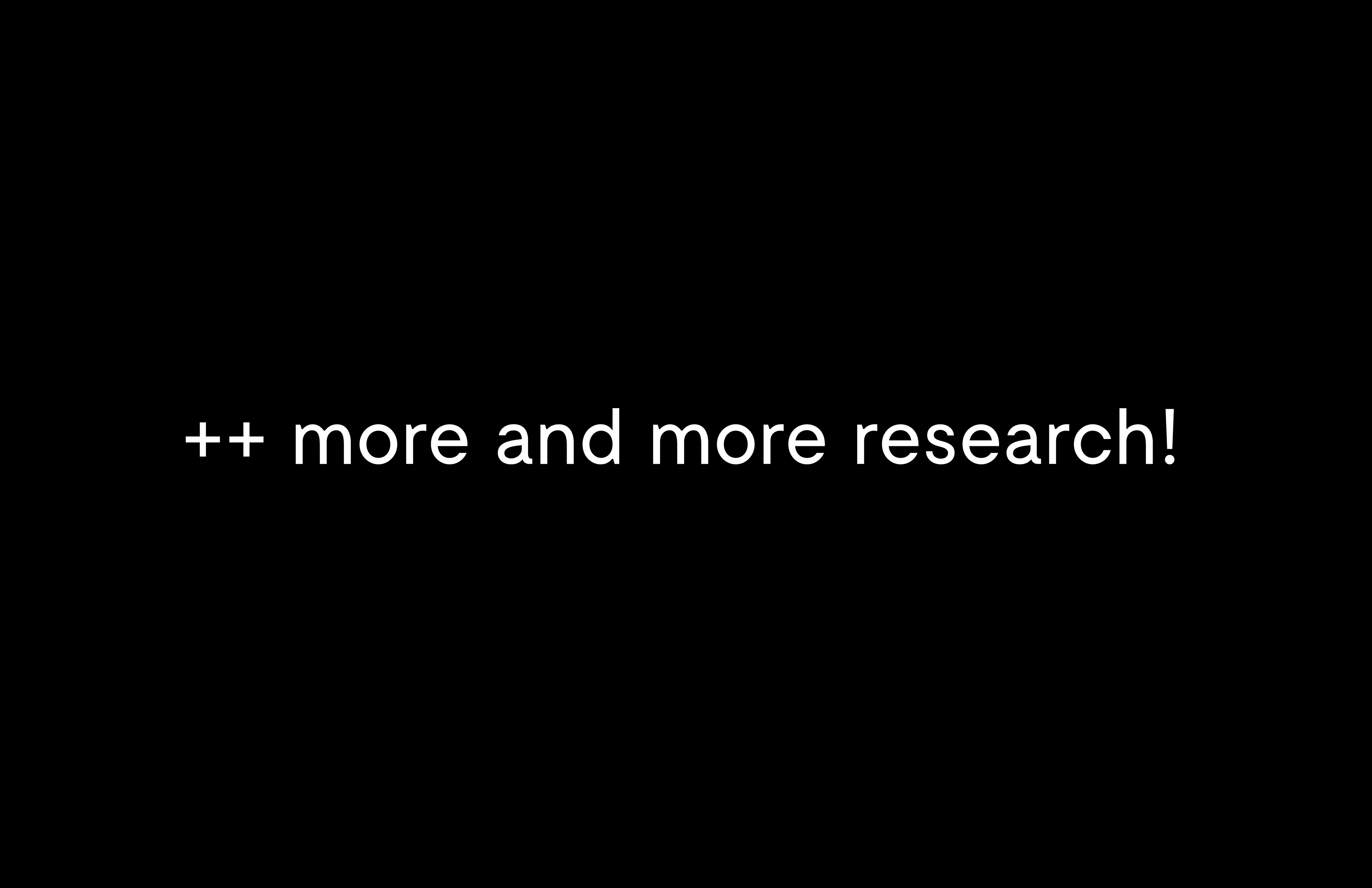
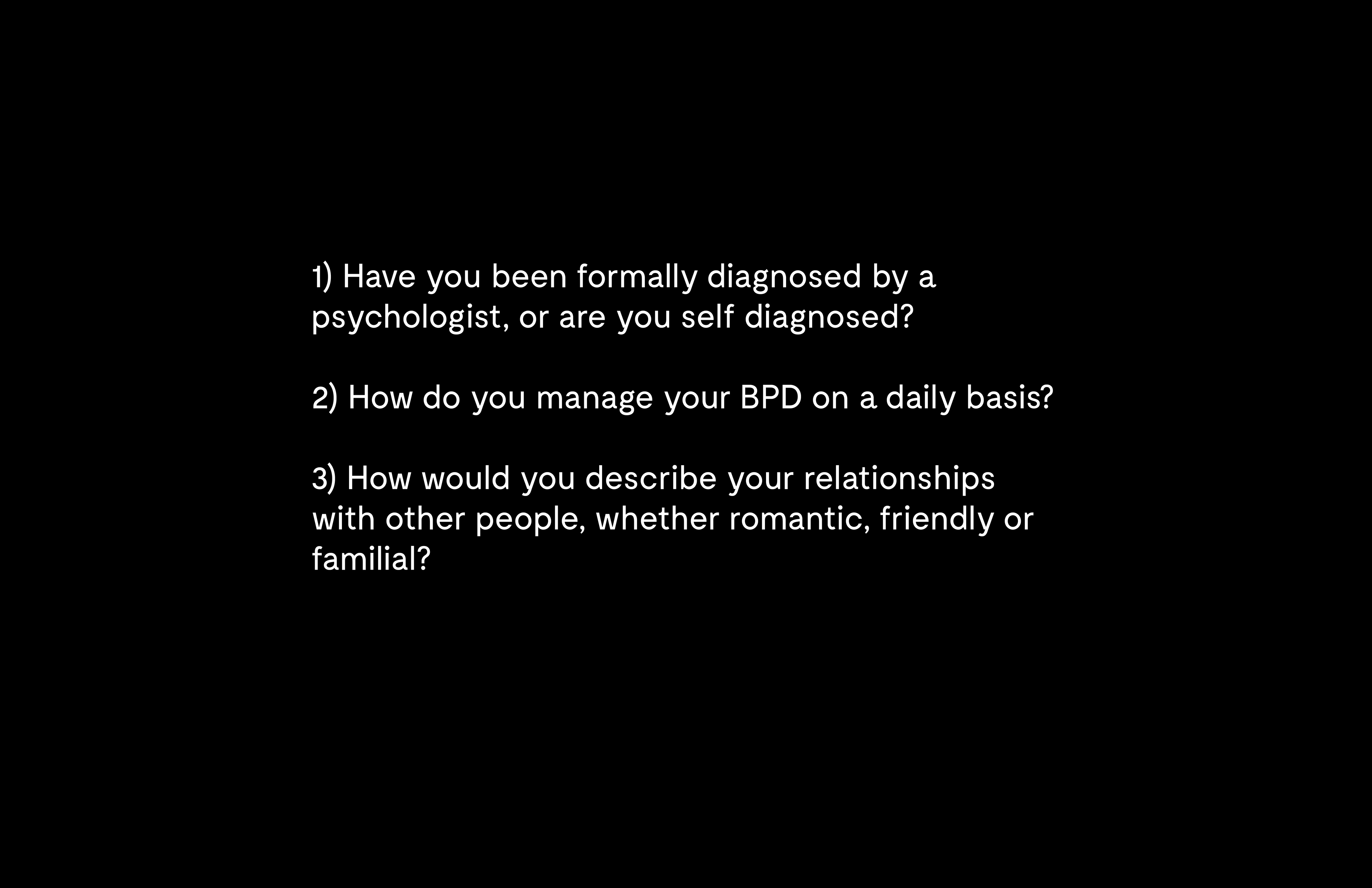
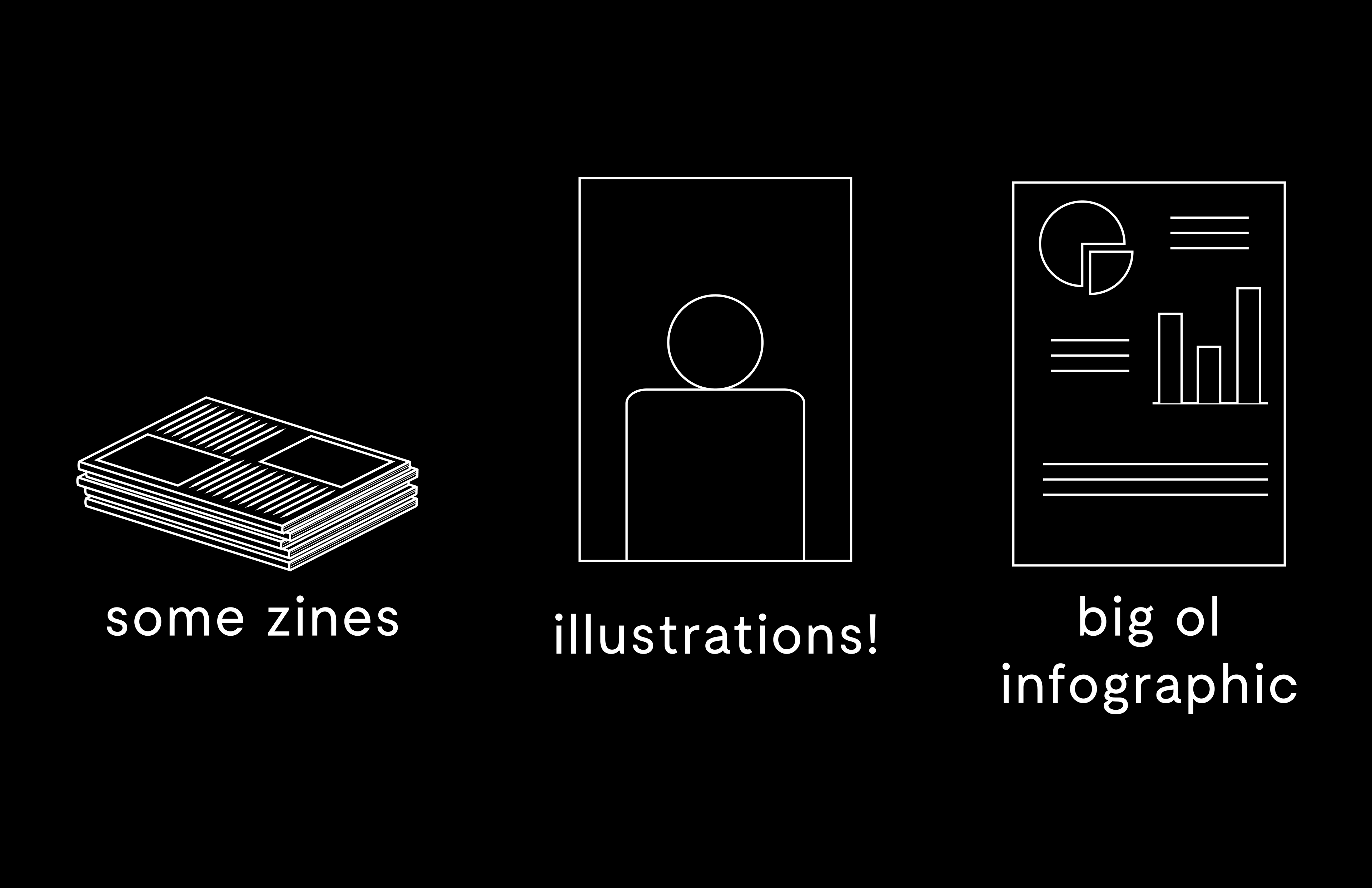
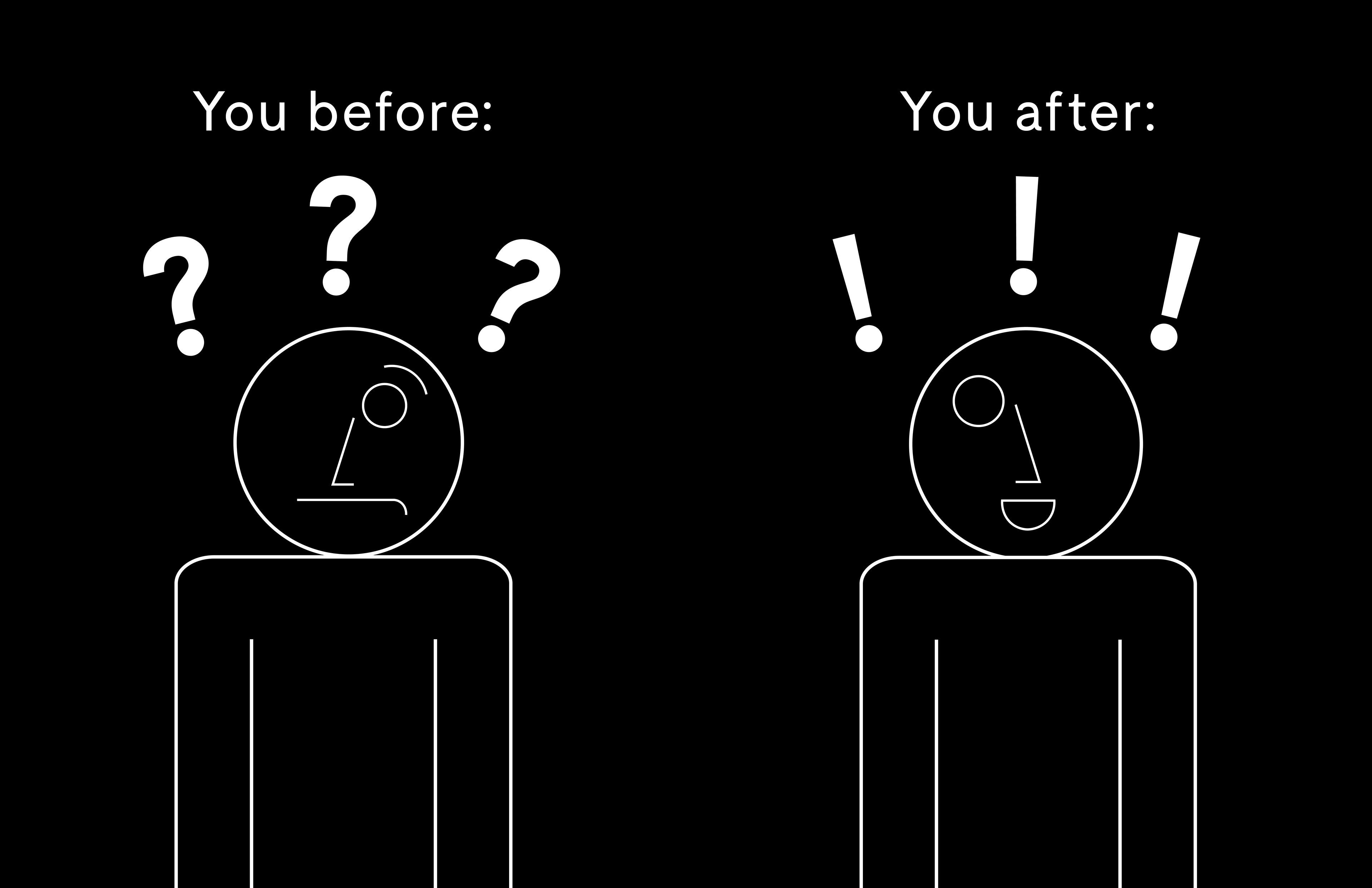
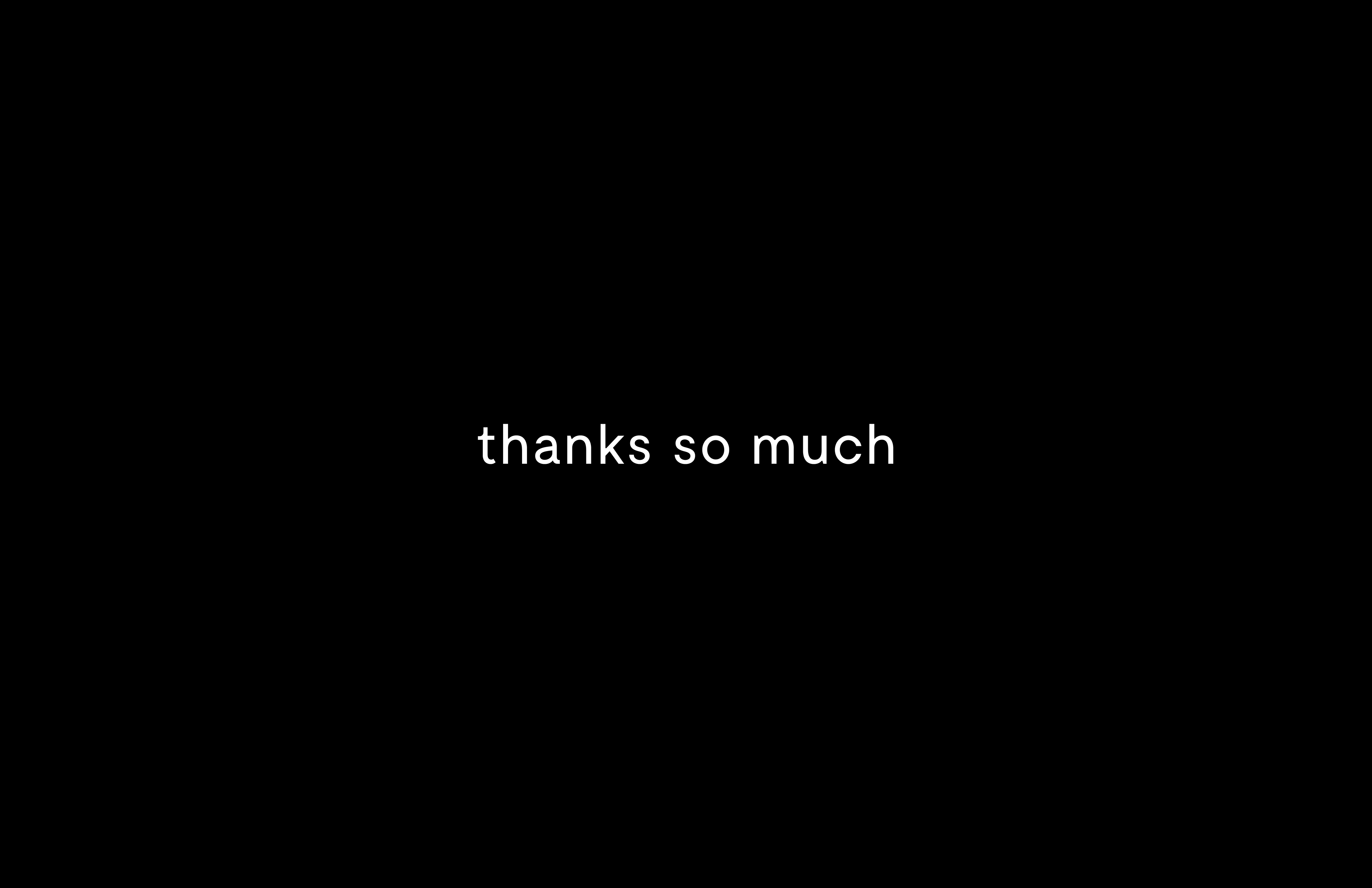
My interviews with people who consented to being spoken to about the inner workings of their mental illnesses are all well documented - however, I cannot post their answers there, as some of what they wrote is too personal and could link others to them specifically.
The questions I asked were as follows:
1) Have you been formally diagnosed by a psychologist, or are you self diagnosed?
2) How do you manage your BPD on a daily basis?
3) How would you describe your relationships with people, whether romantic, friendly or familial?
4) How would you describe your plans for the future?
5) Would you describe yourself as a very impulsive person who participates in risky behavior?
6) Do you find that your emotions easily become hostile in response to little or no provocation?
7) Do you find yourself dwelling on past events, or dealing with racing thoughts that prevent you from being fully in the present? (Are you able to live in the moment? (Why or why not?)
I designed these questions so that each interviewee could have as much leeway with explaining whatever they were comfortable with. Some were incredibly comfortable with giving me a wide range of information while others gave me one word answers. I started this process with over 40 interviewees and by the end of the initial information gathering stage, I was down to five in-depth interviews. One of the most important parts of this project was the art that I collected from each interviewee. Despite their insistence that they weren't visual artists in the traditional sense, each and every one of them practiced art in some way or another. Whether they be a photographer who decided to chronicle their experiences with a DSLR, or a talented stick and poke tattoo artist who uses their skills to give themselves tattoos as a form of catharsis when their BPD symptoms get to be too much - they are all incredibly talented and their art is very important to their healing process.
